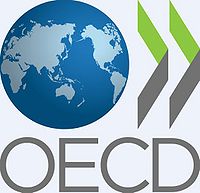Highlight: OECD Looks at Small Business
August 2014 Newsletter
 Large companies may seem to define American culture worldwide, but it is the small business that represents the American identity. Small business helped build this county and is still vitally important to the economy today.
Large companies may seem to define American culture worldwide, but it is the small business that represents the American identity. Small business helped build this county and is still vitally important to the economy today.
The 2008 global economic crisis generated a major shock to regional and national economies, but the effects were particularly significant for small- and medium-sized enterprises (SMEs). Even as the country begins to recover, SMEs continue to face serious challenges in obtaining financial support and loans. The Organization for Economic Cooperation and Development (OECD) recently published a preliminary report, Financing SMEs and Entrepreneurs 2014, which outlines some of the difficulties facing SMEs, and suggests some key reforms to support these small businesses to strengthen national economies.
OECD recognizes the importance of small and medium-sized enterprises, both to present economic recovery and to longer-term economic strength. After surveying 31 countries, the OECD identified several financial challenges facing SMEs. Small firms face significant challenges accessing funding to support their growth, which limits their potential power to innovate, create jobs, and strengthen the economy. Following the financial crisis, firms faced reduced internal funding due to falling customer demand, and decreased external credit availability as banks grew increasingly lending-averse as they aimed to reduce debt ratios to meet new regulatory requirements. While larger firms faced myriad challenges in the wake of the financial crisis, banks grew especially averse to lending to smaller enterprises, which they perceived to be riskier investments, resulting in higher interest rates and less access to credit. This became a self-fulfilling prophecy. Because of these conditions, small businesses were increasingly filing for bankruptcy and missing payment deadlines.
While some alternative sources of finance for small and medium-sized enterprises have begun to recover, many sources remain unreliable. The OECD aimed to provide reliable data and analysis addressing this lack of financing for smaller firms and to stimulate discussion on the impacts of the global economic crisis and recovery on firms worldwide. In its report the OECD suggested several key reforms to improve business conditions. Suggestions included
- encouraging government loan guarantees and funding to SMEs;
- developing policies to stimulate lending;
- establishing financial institutions designed to address the unique needs of SMEs; and
- using alternative financing methods, including hybrid financial tools such as mezzanine financing, which are especially valuable tools during a time of low lending.
Understanding the tremendous potential of small businesses in job creation, innovation, and economic recovery, these policies aim to strengthen the business environment to allow small businesses to flourish.
The success of small businesses is essential to the strength of regional and national economies and will become crucial to ensuring a strong and sustainable global economic recovery. The OECD is taking steps to provide quantifiable information on the financial challenges facing small businesses. It offers well-informed financial recommendations to governments, providing suggestions on how better to support small businesses during this challenging economic period. Here in the United States, the Economic Development Administration is proud to help support longer-term economic recovery and economic development, including supporting small- and medium-sized businesses.
The world may define us by our Big Macs and blue jeans, but we define ourselves by the local mom and pops’ that proved the American Dream was attainable. As the U.S. continues its economic recovery, we must ensure we preserve those small- and medium-sized enterprises that foster innovation, business growth, and the American spirit.


